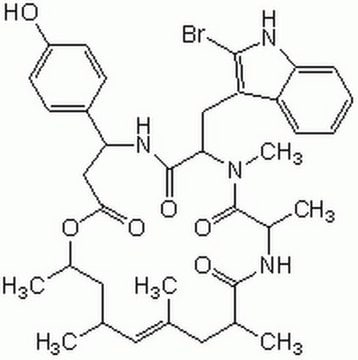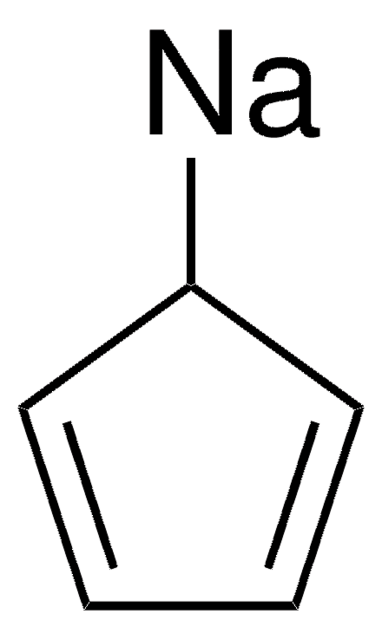454338
Dicyclopentadiene
contains BHT as stabilizer
Synonym(s):
4,7-Methano-3a,4,7,7a-tetrahydroindene, Cyclopentadiene dimer, DCPD
About This Item
Recommended Products
contains
BHT as stabilizer
bp
170 °C (lit.)
mp
33 °C (lit.)
density
0.986 g/mL at 25 °C (lit.)
SMILES string
C1C=CC2C3CC(C=C3)C12
InChI
1S/C10H12/c1-2-9-7-4-5-8(6-7)10(9)3-1/h1-2,4-5,7-10H,3,6H2/t7-,8+,9?,10?/m0/s1
InChI key
HECLRDQVFMWTQS-AFWXGSBKSA-N
Looking for similar products? Visit Product Comparison Guide
Related Categories
General description
Application
- In the preparation of CF/p-DCPD ((carbon fiber/ poly-dicyclopentadiene) composites by VARTM (vacuum-assisted resin transfer molding) process.
- In the preparation of η5-cyclopentadienyltris(dimethylamido)zirconium catalyst.
- In the synthesis of cellulose – maleic anhydride– dicyclopentadiene copolymer matrix by free radical polymerization.
Features and Benefits
- Low shrinkage
- Cost-effective
- Reduced emissions of styrene
- Fast curing in thin layers.
Signal Word
Danger
Hazard Statements
Precautionary Statements
Hazard Classifications
Acute Tox. 2 Inhalation - Acute Tox. 4 Oral - Aquatic Acute 1 - Aquatic Chronic 1 - Eye Irrit. 2 - Flam. Liq. 3 - Skin Irrit. 2 - STOT SE 3
Target Organs
Respiratory system
Storage Class Code
3 - Flammable liquids
WGK
WGK 3
Flash Point(F)
89.6 °F - closed cup
Flash Point(C)
32 °C - closed cup
Personal Protective Equipment
Certificates of Analysis (COA)
Search for Certificates of Analysis (COA) by entering the products Lot/Batch Number. Lot and Batch Numbers can be found on a product’s label following the words ‘Lot’ or ‘Batch’.
Already Own This Product?
Find documentation for the products that you have recently purchased in the Document Library.
Articles
MOST offers controlled solar energy harvesting and storage, addressing global energy demands with improved storage techniques.
Our team of scientists has experience in all areas of research including Life Science, Material Science, Chemical Synthesis, Chromatography, Analytical and many others.
Contact Technical Service











